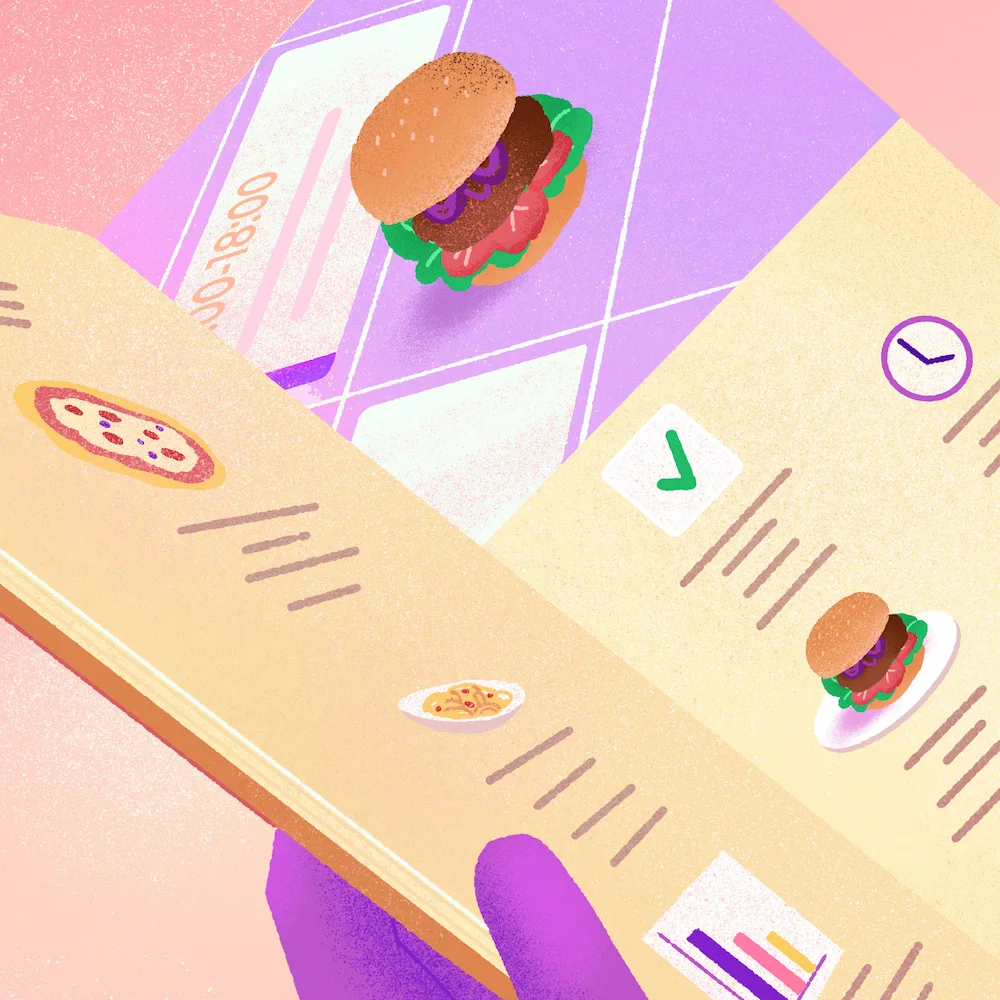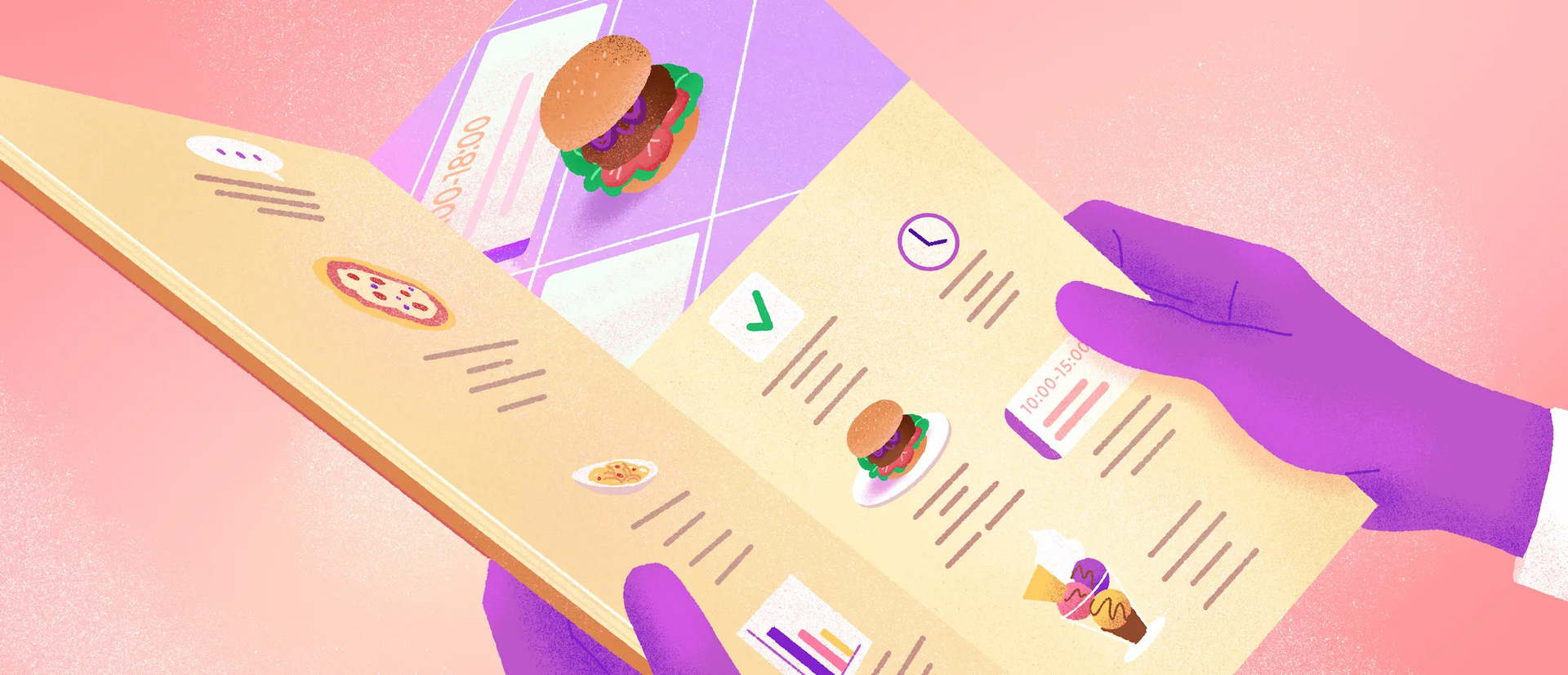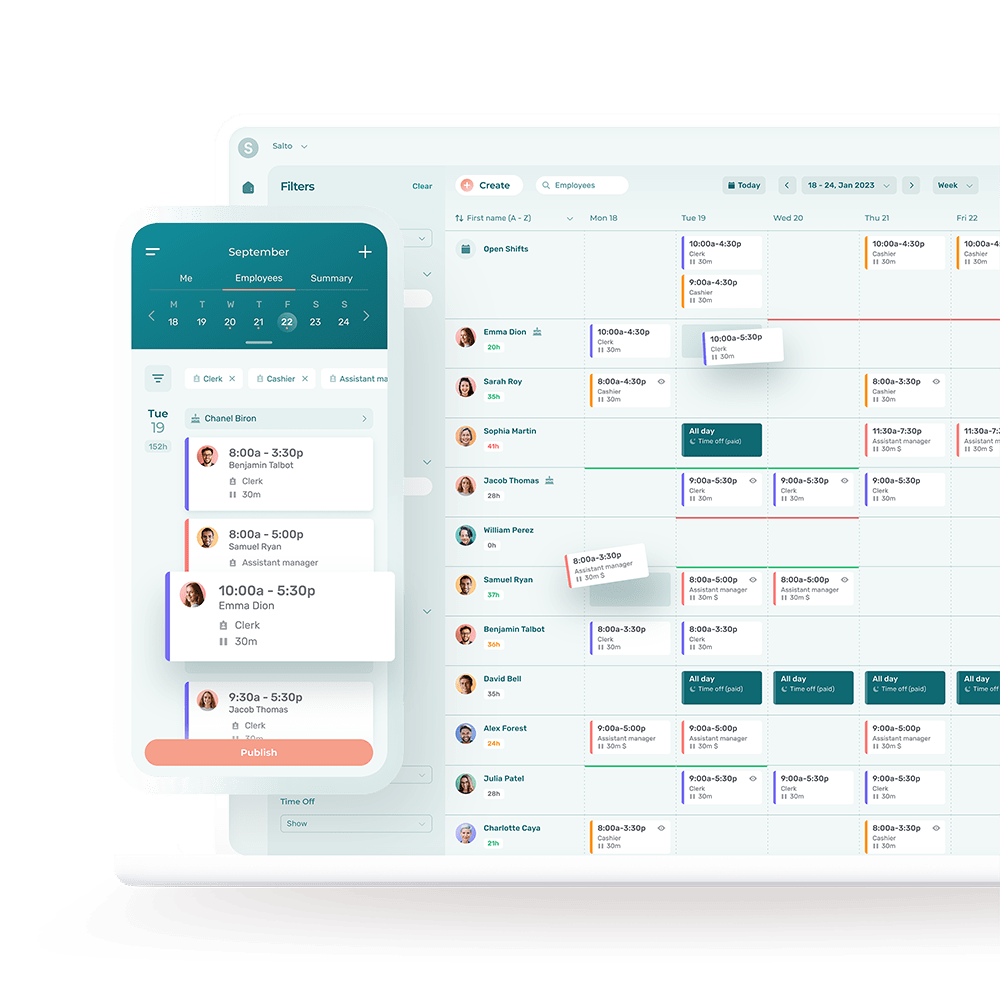An exceptional restaurant manager seamlessly oversees operations, propels growth, and cultivates a thriving work atmosphere. See the essential skills all good restaurant management teams should have.
Whether you aspire to step into this role, refine your current management style, or are on the hunt for your next leading star, this detailed guide will put you on the path to success.
What Does Effective Restaurant Management Look Like?
Effective restaurant management is a full-time juggling act. A great restaurant manager possesses a blend of strong leadership skills, in-depth industry knowledge, and excellent interpersonal abilities. They efficiently juggle daily operations, ensure customer satisfaction, and manage restaurant staff with a balance of firmness and understanding.
How can restaurant owners build an outstanding restaurant management team with a deep understanding of how to run a restaurant effectively?
Some of the key aspects to look for in a potential restaurant managers include:
- Food service management experience—including experience in managing employees and working alongside kitchen staff
- Outstanding organization skills
- A proactive approach to areas like problem-solving, human resources, public relations, and customer experience
- Consistent financial performance and low staff turnover rates
- Culinary experience can be an asset
Top 3 Benefits of Effective Restaurant Management
Good restaurant management profoundly affects the following facets of the business.
- Employee retention: effective leadership creates a positive work environment, reducing turnover and training costs.
- Customer satisfaction: proficient restaurant managers foster consistent service quality and swift issue resolution, encouraging repeat business.
- Earnings: adept restaurant managers ensure efficient resource utilization, leading to better profit margins.
Discover why many restaurant managers choose Agendrix to help streamline their HR and schedule management.
16 Key Skills of a Restaurant Manager
A successful restaurant manager often possesses a blend of skills that are continuously honed through experience and ongoing learning.
- Leadership abilities: direct teams effectively, inspire staff, and set a positive example. Look for ways to make things easier for staff. Employees will appreciate even the little things like different ways to clock, such as on their phones.
- Communication skills: clearly convey ideas, give feedback, and resolve conflicts.
- Decision-making: make timely, effective, and informed choices, even under pressure.
- Time management: prioritize tasks, centralize staff management, and allocate time efficiently. This is especially important if managing several job sites.
- Customer service: understand and prioritize guest satisfaction, address complaints gracefully, and support your team.
- Financial acumen: budget, monitor expenses, understand P&L statements, and optimize profits.
- Operational expertise: understand restaurant operations, from front-of-house to back-of-house.
- Problem-solving: address unforeseen challenges creatively and effectively.
- Adaptability: adjust to changing circumstances and remain calm during high-stress situations.
- People skills: Build rapport with staff, suppliers, and customers; foster teamwork and collaboration.
- Motivational skills: encourage staff, maintain morale, and identify professional development opportunities.
- Knowledge of health and safety: Ensure the environment adheres to health and sanitation standards.
See related: How to pass your restaurant health inspection - Cultural awareness: Embrace diversity and promote an inclusive work atmosphere.
- Technological proficiency: Familiarity with restaurant management software, POS systems, reservation platforms, and employee scheduling software.
See related: One of Montreal’s premier restaurants is leveraging technology to spend less time on management, more time with client - Conflict resolution: Mediate disputes among staff or between staff and customers.
- Strategic planning: Set long-term goals, foresee challenges, and plan for growth.
How Restaurant Managers Can Train for These Skills
Canada offers a plethora of courses catering to current and aspiring restaurant managers, allowing them to hone the skills vital for success in the hospitality industry.
- Educational institutions: many Canadian colleges and universities offer hospitality management programs. For example, the Toronto Metropolitan University has the Ted Rogers School of Hospitality and Tourism Management, and Centennial College in Scarborough offers a Hotel, Resort and Restaurant Management program.
These courses give a comprehensive understanding of the industry, covering everything from operations to marketing. - Professional associations: the Canadian Restaurant and Foodservices Association (CRFA) offers resources, training, and networking opportunities. By joining such associations, one can gain access to industry-specific training and workshops.
- Workshops and seminars: often held by industry experts or consultancy firms, these focus on niche areas of restaurant management. Topics might include conflict resolution, financial planning, or customer service excellence.
- On-the-job training: one of the best ways to learn is by doing. Many restaurant chains, like Starbucks and Darden (which includes brands like Olive Garden, LongHorn Steakhouse, and others) offer management training programs. Even working in different roles within a restaurant can offer valuable insights. By rotating through positions—from server to kitchen staff—one gains a holistic view of restaurant operations.
- Online resources: websites like Coursera or Udemy frequently offer courses in leadership, finance, and customer service that, while not restaurant-specific, can be highly beneficial. Additionally, there are forums, blogs, and online communities dedicated to restaurant management where one can learn from peers and industry veterans.
- Mentorship: seeking a mentor in the industry can be invaluable. Experienced restaurant managers can offer guidance, advice, and insights that are difficult to gain elsewhere.
15 Restaurant Management Tips
The best restaurant managers possess a strong combination of hard skills, like financial acumen and mastery of restaurant management technology, and soft skills, such as leadership and communication.
Integrating the business practices from these tips will lead to smoother day to day operations and more effective employee management in the food service industry.
1. Manage Proactively
💡How: anticipate issues and changes rather than waiting for them to happen. Plan ahead for things like staffing needs, menu changes, promotional strategies, scheduling changes, etc.
2. Focus On Processes
💡How: examine each process, from menu planning & pricing to waste management. Look for ways to improve each one by eliminating inefficiencies and following industry best practices.
3. Embrace Technology
💡How: integrate POS systems for efficient billing and use reservation software to manage bookings. Explore digital platforms for marketing and online orders Invest in restaurant scheduling software to centralize HR management and avoid work overload.
See related: Discover multiple apps that make restaurant management easier.
4. Understand Your Business Inside Out
💡How: regularly spend time in every role—from server to chef to janitor. This will give you a full perspective of the daily challenges each team member faces and will earn their respect.
5. Set Clear Goals and Objectives
💡How: identify short-term and long-term targets, such as revenue goals, customer feedback scores (like your NPS), or reducing waste. Share these with your team and ensure everyone understands their role in achieving them.
6. Prioritize Staff Training
💡How: focus on staff training right from the new hire onboarding process. Host monthly training sessions. Focus not just on job-specific skills but also on customer service skills, conflict resolution, and team collaboration.
7. Stay Updated With Industry Trends
💡How: subscribe to restaurant industry magazines and newsletters, join online forums, and attend seminars or workshops. This keeps you informed about new technologies, customer preferences, or food trends.
8. Maintain Financial Discipline
💡How: regularly review profit and loss statements. Allocate budget for essentials first, such as salaries, inventory, and maintenance, before spending on upgrades or aesthetics.
9. Promote a Positive Work Environment
💡How: recognize and reward employee achievements, both publicly and privately, such as with high fives in Agendrix. Foster open communication, encouraging staff to share concerns and suggestions.
10. Optimize Your Inventory
💡How: implement inventory management software. Regularly review usage data to adjust orders, avoiding overstock and wastage.
11. Enhance the Customer Experience
💡How: collect feedback through comment cards or digital surveys. Train staff to handle complaints gracefully, and consider rewarding loyal patrons with occasional discounts or complimentary items.
12. Stay Compliant With Health and Safety Standards
💡How: conduct monthly inspections to ensure the kitchen, storage, and dining areas meet local health and safety regulations. Regularly update your staff about hygiene best practices.
13. Foster Community Relations
💡How: organize or participate in local events. Consider hosting charity fundraisers or local sports team celebrations to embed your restaurant in the community fabric.
14. Maintain Work-Life Balance
💡How: even as a manager, it’s crucial to take breaks and ensure you’re not constantly on-call. This prevents burnout and ensures you’re always at your best when on duty. Strive to offer employees a good work-life balance as well.
See related: How to prevent burnout at work
15. Make Continuous Improvement a Priority
💡How: periodically reassess processes, from food sourcing to customer service. Implement a feedback loop with your team, always looking for opportunities to enhance efficiency and the employee experience.
See related: 10 ideas for an optimal employee experience
What Does Management Do in a Restaurant?
The primary objective of every restaurant manager is to ensure the business operates smoothly and profitably, all while providing a pleasant experience for customers and employees alike.
Here’s a breakdown of the key roles of restaurant management:
- Operational oversight: ensure the smooth day-to-day running of the restaurant, overseeing food preparation, service quality, and guest satisfaction.
- Staff management: hire, train, and supervise staff. This includes maintaining up-to-date employee records, creating employee schedules, handling conflict, tracking time & attendance with accurate timesheets, and assessing performance for potential promotions or disciplinary actions.
- Financial management: oversee the restaurant’s budget, monitor daily sales, manage cash flow, and ensure the profitability of the establishment. This includes controlling costs related to labor, inventory, and overhead expenses.
- Inventory control: regularly check inventory levels, order supplies, and ensure efficient usage of ingredients to minimize waste.
- Menu development: collaborate with chefs to design and regularly update the menu, considering seasonality, customer preferences, and food cost percentages.
- Marketing and promotion: develop and implement marketing strategies to attract customers. This may include social media campaigns, loyalty programs, and special event promotions.
- Customer service: address customer feedback, handle complaints, and foster a culture of excellent customer service among staff.
- Safety and compliance: ensure that the restaurant meets health and safety standards, obtain the necessary licenses, and ensure staff follow sanitation practices.
- Strategic planning: set short-term and long-term goals for the restaurant, taking into account market trends, competition, and internal strengths and weaknesses.
- Technology management: implement and maintain point-of-sale (POS) systems, reservation software, employee scheduling software, and other technological tools to streamline operations.
- Vendor relations: establish and maintain relationships with suppliers, negotiate prices, and ensure timely deliveries of quality products.
- Maintenance and ambiance: ensure the restaurant’s environment is clean, comfortable, and in line with the brand. Address any repair or maintenance issues promptly.
What Qualifications Are Required to Manage a Restaurant?
The qualifications needed to manage a restaurant can vary based on the type and size of the establishment, its location, and specific company preferences.
However, some common qualifications and experiences are generally sought after in the industry:
Education
- Diploma or degree in hospitality or restaurant management: many institutions offer specialized programs that cover essential aspects of the business.
- Business management or administration degree: a broader understanding of business can also be beneficial.
Experience
- Prior restaurant experience: having experience, even in roles like server, bartender, or cook, provides invaluable insights into the daily workings of a restaurant.
- Previous management experience: experience in managing teams, even outside of the restaurant industry, can be beneficial.
Certifications
- Food safety certification: demonstrates knowledge of proper food handling, storage, and sanitation practices.
- Alcohol service certification: relevant if the restaurant serves alcohol, to ensure legal and safe service.
Soft skills
- Leadership: ability to inspire and guide a team.
- Communication: effective in conveying ideas and resolving conflicts.
- Problem-solving: can address unexpected challenges and find effective solutions.
- Customer service orientation: dedicated to providing exceptional experiences for patrons.
Hard skills
- Financial acumen: understanding of budgeting, P&L statements, and cost management.
- Tech proficiency: familiarity with restaurant management software, POS systems, and reservation platforms.
Other important assets in a restaurant manager:
- Physical stamina: restaurants often require long hours on one’s feet and the ability to manage in a fast-paced environment.
- Continued education: the restaurant industry is dynamic. Successful managers often pursue workshops, courses, or seminars to stay updated with trends, technologies, and best practices.
- Solid network: while not a strict qualification, having a network within the industry can provide support, advice, and opportunities.
What Are Common Mistakes Restaurant Managers Make?
Even experienced managers can make mistakes. Here are some of the most common errors many restaurant managers make:
- Poor communication: failing to clearly convey expectations, give feedback, or maintain open channels for staff to voice concerns can lead to misunderstandings and decreased morale.
- Micromanagement: constantly overseeing every minor detail can demoralize staff and prevent them from taking initiative.
- Neglecting training: underestimating the importance of continuous staff training can lead to inconsistent service and mistakes.
- Lack of adaptability: not staying updated with industry trends or failing to adapt to changing customer preferences can make a restaurant seem outdated.
- Inadequate inventory management: over-ordering leads to wastage, while under-ordering can result in unavailable menu items, disappointing customers.
- Ignoring customer feedback: not addressing or dismissing negative customer reviews and feedback can damage the restaurant’s reputation.
- Ignoring employee feedback: failing to obtain employee insights and perspectives can lead to low retention rates and lost opportunities for improving the customer experience.
- Poor financial management: not regularly reviewing profit and loss statements or not setting clear budgets can lead to financial problems.
- Not leading by example: managers who don’t uphold the standards they set for their staff can quickly lose respect and authority.
- Inconsistent discipline: being inconsistent in handling staff mistakes or conflicts can lead to confusion and resentment.
- Neglecting marketing: failing to invest in marketing or not utilizing modern marketing channels can limit the restaurant’s visibility and growth potential.
- Overworking staff: failing to create fair and equitable schedules for employees or ensuring staff have reasonable shifts or breaks can lead to burnout, high turnover, and poor customer service.
- Failure to delegate: not trusting staff with responsibilities can overburden the manager and prevent the team from developing necessary skills.
- Not prioritizing maintenance: overlooking the importance of regular maintenance and cleanliness can lead to bigger problems in the long run and negatively impact customer experience.










